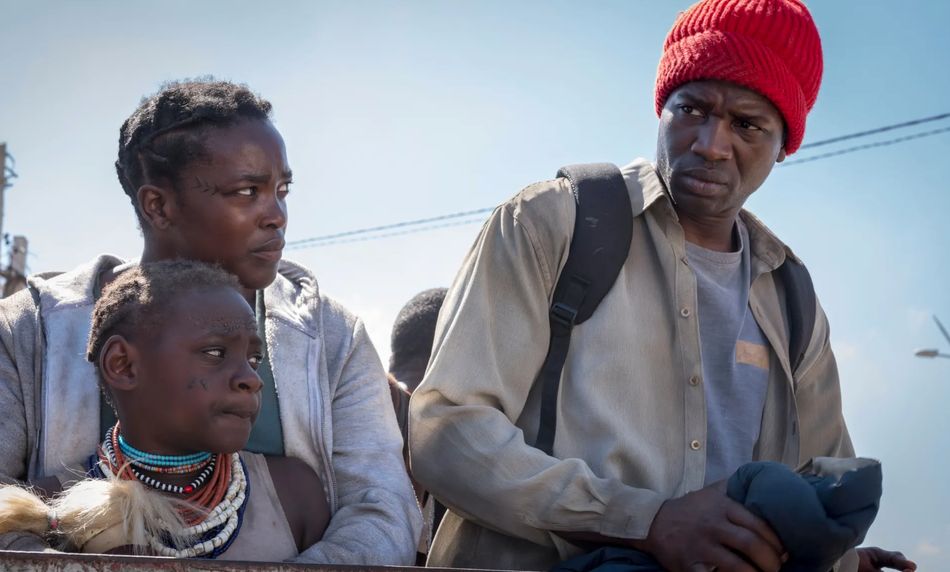Traversing film genre, and burrowing instead into the very fabric of everyday reality, as the great John Carpenter once said: “Horror is a reaction; it’s not a genre.” From George Romero’s zombie classic Night of the Living Dead to Jordan Peele’s 2017 film Get Out, the genre has long been a vehicle to house political, sociological or cultural statements. Examining who we are, what we’re afraid of, and crucially, why we’re afraid of it, the genre often throws a mirror up to contemporary life, forcing us to face the horrors that we’ve long ignored.
In Remi Weekes’ debut film, His House, claustrophobia, isolation and discrimination reside in the very walls and ceilings of the titular decrepit home, communicating the fears that are imported with those who come to the UK as refugees. Evading a war-torn South Sudan in the hope of finding refuge in England, couple Rial (Sope Dirisu) and Bol (Wunmi Mosaku), are awarded temporary accommodation, though find their attempts to assimilate with small-town English life, thwarted by a lurking evil.
Not only peering from beneath a creaking door, or a slit in the wall, here, terror terrifically manifests as a stalking curse, a guilt weighing down on their shoulders, throwing a grey-scale sheet over their eyes. Bound to the cheap walls of the house, and the local surrounding area, anxiety tugs on their coattails and seems to suffocate and disorientate, typified by one excellent scene in which Rial finds herself navigating the impossible labyrinth of the back alleys and dead ends of her new neighbourhood.
This, with deft ease and accuracy, creates a tone and atmosphere so suffocating that it oozes empathy – these characters, their history and their current situation become communal. This is achieved through a number of different avenues, though is certainly led by the excellent performances of the two lead actors, whose fears, guilts and anxieties leak from their very pores. Memories of a lived reality manifest as dreams, visceral visions and flashbacks, providing brief glimpses into a scarred, scattered past, punctuated by a particular twist that creeps into the story like an unwanted memory, a guilt-laden, gut-punch powerfully communicating the couples’ remorse.
Though it excels dramatically, accurately translating the fears and trepidation of refugees seeking shelter from their past, director Remi Weekes’ cannot seem to establish which type of film he’d like to conjure. Whilst fears and anxieties initially manifest themselves as fleeting glimpses of undefinable figures or as creaking whispers, these pieces soon, unfortunately, take shape as a flabby, pale creature whose presence is more feared when it couldn’t be seen. The fears of their past had already taken shape as ominous voids, empty anxiety of shadowed figures – the very need to put a face to the fear is superfluous.
Arriving at their temporary accommodation, they find the wallpaper, literally papering cracks – a reflection perhaps of their own past reality they have not yet come to terms with. It is not until this facade is dropped that the holes appear, and they are rife. Large, empty crevices, inhabited by bulging paranoia, guilt and regret, manifesting as watchful eyes, reminders of their harrowing past. How the couple battle against these demons, and repair their inner turmoil is where the film excels, and whilst, for a moment this may manifest into something quite gratuitous, Weekes’ climactic statement is powerfully charming to behold.
